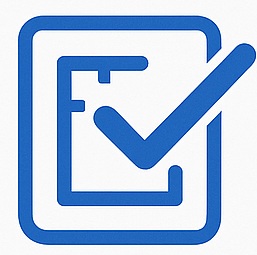After several conferences with visits to AI Plan Check companies at their booths, the official marketing has begun.
PlanCheckPro.AI is an innovative, regulatory-compliant plan review system designed by engineers and permitting experts to eliminate delays in traditional plan reviews. Our AI technology quickly analyzes construction drawings, identifies code issues, references specific regulations, and offers...

plancheckpro.ai
I have soooooo many questions. The last time I spoke, the different vendors said that their system was limited in scope and still in the testing and design phase, but marketing was on full blast. This is a conversation we must have.
Does anyone have any direct experience with something like this? More to come.
I can read so many questions into what you ask.
As an ABET Accredited Computer Engineer, with a duel degree in comp eng and comp sci...
First thought comes to mind "garbage in/garbage out". I would use the AI tool as a sanity check, but use your professional expertise and research to validate whatever AI program tells you. There are lots of stories of test pilots who died because of computer errors, and test pilots who lived because they outthought the computer, which was screwing up.
That being said, ChatAI does a wonderful job on saving me many hours of editing, and keeps me from getting caught in that vicious editing circle. Gives me great case law and other information I did not previously know.
What is scaring me, is the difference between "The Science" proper noun and the science is simple. "The Science" someone is in charge, someone edits, someone controls. The science has young whippersnappers coming up with insane claims like the law of physics is wrong, it fails approaching the speed of light (einstien, E=MC squared), that light actually has mass and the theory of quantum physics. In our world some STUDENT informed one of the greatest architects in the world that his amazing building in New York is going to blow over... and damn if the student wasn't right.
Also, Remember, you can never Trust the Vendor... you must verify everything they promise...and they can break things in the next release. We held off putting in security updates and other updates from EVERY software and OS vendor for six months unless we HAD to put it in. Because we were going to let someone else fall. Anyone remember when the Pentium chip was screwing up on the rounding errors?
I was a specialist at "automation" which I combined AI training with other systems programing skills to automate complex processes. Oversimplified it is mostly creating and updating lookup tables, an expert making decisions and the coder putting it into practice (I was usually both).
Bad people or unqualified people with access to the AI systems can do incredibly bad things. I can tell war stories of what unqualified or stupid people did to good code. I don't know how complete the AI can be on your local systems, it may need to crawl the web to get its information...But the software company should be able to create dictionaries and look up tables and the like for "air gapped" AI systems for building codes.
I know how to feed bad information that will do horrible things. An evil project in my head could do terrible things to the DNA databases.... simply paying families for thier DNA swabs, then submitting them under the data of other families... How are you going to fix it? Another evil project in my head was how easy it would be to irreparably destroy a document database.... simply swapping file names on files and overwriting files, maintaining the same file dates, do 100 a day, when they discover it a couple of years later...how do you recover?
So, one of the things to HELP keep bad things from happening in codes from AI, is SOC II audits of the AI software.
P.S. I would have run this through ChatGPT for clarity and better grammer but the admin indicated you don't want AI editing done on this sight


